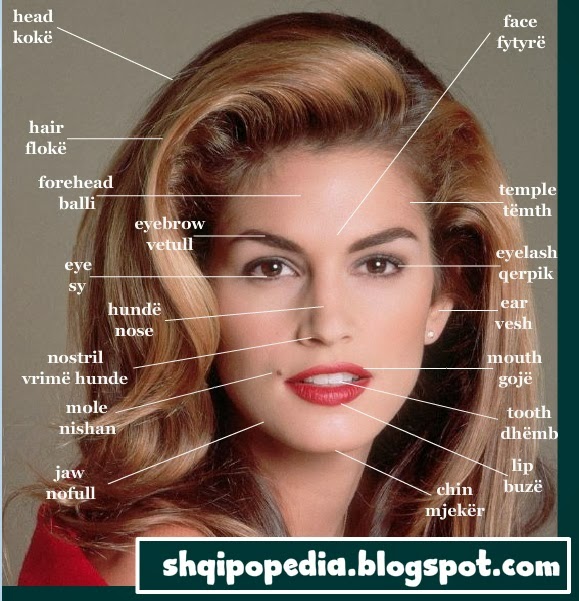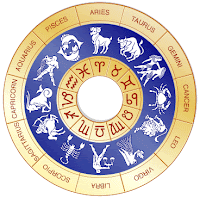To chicken out
To chicken out


To chicken out, eshte nje shprehje e gjuhes se folur ne anglisht qe do te thote tja mbathesh nga frika. Dmth ne momentin e fundit te mos besh ate gje qe the, sepse nuk ta mban apo ke frike. Pra me pak
Kitchen devices - Pajisjet e kuzhines
Kitchen devices - Pajisjet e kuzhines IV
 |
| raclette grill - skarë universale |
Kitchen accessories - Aksesorë kuzhine III
Kitchen accessories - Aksesorë kuzhine në anglisht III
 |
| mandolin - grirese |
Kitchen tools - Enet ne anglisht II
Kitchen tools - Enet ne anglisht II
 |
| dutch oven - tenxhere holandeze |
Riddles in English - Pergjigjet

Riddles in English - Pergjigjet
1.Snail - Kërmilli
2: Nothing - Asgjë
3. Rain - Shiu
4. A candle - Qiri
Fjale te urta angleze anglisht - English proverbs
Fjale te urta angleze anglisht - English proverbs

Time is money. - Koha është flori.
A bad excuse is better than none. - Nje justifikim i keq eshte me mire se asnje.
A cat has seven lives but a woman has seven cat lives. - Nje mace ka shtate jete, por gruaja ka shtate jete macesh .
A constant guest is never welcome. - Nje mysafir i vazhdueshem nuk eshte i mirepritur .
A good drink makes the old young. - Nje pije e mire e ben plakun te ri.

Time is money. - Koha është flori.
A bad excuse is better than none. - Nje justifikim i keq eshte me mire se asnje.
A cat has seven lives but a woman has seven cat lives. - Nje mace ka shtate jete, por gruaja ka shtate jete macesh .
A constant guest is never welcome. - Nje mysafir i vazhdueshem nuk eshte i mirepritur .
A good drink makes the old young. - Nje pije e mire e ben plakun te ri.
Çfarë do të thotë ASAP
Çfarë do të thotë ASAP

I was watching a movie a few days ago, and truth must be told, the translation was very good
(it was a well-known TV channel), until I heard the ASAP phrase. The phrase "call
What is vegetable
What is vegetable?
Çfare eshte vegetable?

The problem is that many of us, do not know it metaphoric meaning and sometimes
the translation in Albanian is nonsense and ridiculous.
Cooking tools - Enet e kuzhines ne anglisht
Cooking tools - Enet e kuzhines ne anglisht
 |
| apron - perparese |
Shprehje ne anglisht per jeten

Sayings in English about life
Shprehje ne anglisht per jeten
Life is what happens to you while you're busy making other plans.
Jeta eshte cfarc ndodh ndersa ti je i zene duke bere plane te tjera.
Allen Saunders
“Don't cry because it's over, smile because it happened.”
Mos qaj sepse mbaroi, buzeqesh ngaqe ndodhi.
Dr. SeussFilma Anglisht

Filma Anglisht
Another useful aid in language learning is of course through movies, where the dialogs in English makes it possible to get used to the language and to apprehend words in spoken language and also the learning of new expressions. Don't try to get and understand all the words immediately, because the learning process of a foreign language is a step by step one, it's a process which requires will, time and willpower. And furthermore, the words which are learnt fast may be forgotten fast. In this part of the site, will be placed movies in English which may be useful to all of you.
Me mire nje mik sesa nje thesar (film)

Filma Anglisht
Who finds a friend finds a treasure
(Përkthimi. Kush gjen një mik gjen një thesar)
FUTURE CONTINUOUS TENSE
Koha e ardhme e vazhduar (Future Continuous Tense) tregon per nje veprim qe do te behet dhe do te vazhdoje deri ne nje kohe te caktuar ne te ardhmen.
p.sh. I will be studing
from six o’clock to
eight o’clock tomorrow. – Neser do te lexoj nga ora gjashte deri ne oren tete.
This
time, I will be flying to Tirana. – Neser ne kete kohe do te jem duke fluturuar
per ne Tirane.
SIMPLE FUTURE TENSE
Simple Future Tense shows an action that will take place once in the future. It is formed with auxilary verb will. Sometimes we use SHALL in the first person in singular and plural and we use it in questions, suggestions, anf offers.
e.x. Shall we go by train? or Shall I help you?
Simple Future tregon nje veprim qe ka per t’u bere nje here ne te ardhmen. Formohet me foljen ndihmese will (do te) Will perdoret njelloj ne te gjitha vetat. Ndonjehere perdorim shall per veten e pare te numrit njejes dhe shumes. Shall perdoret ne pyetje, per sygjerime, per oferta.
e.x. Shall we go by train? or Shall I help you?
Simple Future tregon nje veprim qe ka per t’u bere nje here ne te ardhmen. Formohet me foljen ndihmese will (do te) Will perdoret njelloj ne te gjitha vetat. Ndonjehere perdorim shall per veten e pare te numrit njejes dhe shumes. Shall perdoret ne pyetje, per sygjerime, per oferta.
P. sh. Shall we go by
train? A te shkojme me tren? Pra bejme nje sygjerim.
Shall I help you? A t’ju
ndihmoj? Oferte
PAST CONTINUOUS TENSE
PAST CONTINUOUS
TENSE
Past Continuous Time Tense indicates an action which took place in a certain time or that has occurred in a certain period in the past.
Koha Past Continuous Tense tregon një veprim që bëhej në
një kohë të caktuar ose që ka ndodhur ne nje periudhe kohore ne te shkuaren.
Formohet me te kryeren e thjeshte te foljes be
dmth was/were + foljen +mbaresen ing
Formohet me te kryeren e thjeshte te foljes be
dmth was/were + foljen +mbaresen ing
PAST CONTINUOUS TENSE
It is used:
Perdoret:
RREGULLA DREJTSHKRIMORE ME MBARESEN -ED
If the verb ends with -e then we add only -d
e.x decide – decided.
N.q.s: folja mbaron me –e atehere shtojme vetem –d
e.x decide – decided.
N.q.s: folja mbaron me –e atehere shtojme vetem –d
p.sh: decide – decided.
If the verb ends with -y and before the -y there is a consonant, than the -y becomes -i and we add th -ed suffix.e.x. study –studied BUT play – played
If the verb ends with -y and before the -y there is a consonant, than the -y becomes -i and we add th -ed suffix.e.x. study –studied BUT play – played
N.q.s: folja mbaron me –y dhe para y-se ka
bashketingellore, atehere y-ja kthehet ne –i
dhe shtojmë mbaresen –ed.
SIMPLE PAST
SIMPLE
PAST
Simple Past Tense is used:
Koha Simple Past perdoret:
Koha Simple Past perdoret:
1.) For actions that ended in a specified time in the past.
Për
veprime që mbruan në një kohë të
përcaktuar në të shkuarën.
a.
p.sh.: He sold his car two weeks ago. When? - Two weeks ago.
(Ai e shiti makinën e tij para dy javesh) Kur? - Para dy
javesh.
PERFECT TENSE
Meso anglisht
THE PERFECT
TENSE
Koha
Perfect Tense formohet me kohen e tashme te foljes have plus pjesoren e shkuar
te foljes.
I have looked. (looked =pjesorja e shkuar e foljes
look)
The Perfect Tense is used:
Koha Perfect Tense perdoret:
1.) For actions that happened in an unknown time in the past - Per
veprime qe ndodhen ne nje kohe te papercaktuar ne te shkuaren
a.
p.sh.: He has sold his car. (Ai shiti makinen.) When? Kur? – We don't know. Nuk e dime.
RREGULLA DREJTSHKRIMORE ME MBARESEN -ING
RREGULLA
DREJTSHKRIMORE ME MBARESEN
-ING
If the verb end only with a consonant and before it is only a vowel AND the verb is stressed in the last syllable, then the last consonant is doubled.
E.x sit – sitting, begin – beginning
BUT look –looking (because there are two vowels)
(Present Continuous
Tense)
N.q.s. Folja mbaron vetem
me nje bashketingellore dhe para bashketingellores eshte vetem nje zanore dhe
folja theksohet ne rrokjen e fundit atehere bashketingellorja e fundit dyfishohet.
P.sh: sit – sitting, begin –
beginning
ndersa look –looking (sepse jane dy zanore)
SIMPLE PRESENT

Let's start with Simple Present Tense
Le te fillojme me Simple Present, koha e
tashme
PARAFJALET NE ANGLISHT
Mesoni Anglisht parafjalet
about: about is used after some verbs, nouns, and adjectives to introduce extra information. About is also often used after verbs of movement, such as `walk' and `drive', and in phrasal verbs such as `mess about' and `set about', especially in British English. You use about to introduce who or what something relates to or concerns. When you mention the things that an activity or institution is about, you are saying what it involves or what its aims are.
above: If one thing is above another one, it is directly over it or higher than it. If an amount or measurement is above a particular level, it is greater than that level.
according: If someone says that something is true according to a particular person, book, or other source of information, they are indicating where they got their information.
about: about is used after some verbs, nouns, and adjectives to introduce extra information. About is also often used after verbs of movement, such as `walk' and `drive', and in phrasal verbs such as `mess about' and `set about', especially in British English. You use about to introduce who or what something relates to or concerns. When you mention the things that an activity or institution is about, you are saying what it involves or what its aims are.
above: If one thing is above another one, it is directly over it or higher than it. If an amount or measurement is above a particular level, it is greater than that level.
according: If someone says that something is true according to a particular person, book, or other source of information, they are indicating where they got their information.
about: afer, perreth, per, rreth, me, rrotull
above: jashte, me teper, mbi, pertej
according : sipas
across: mbi, neper, matane, permes, ne kontakt me
after: megjithese, pas, ne lidhje me, prapa, ne stilin e,
sipas, per
against: kunder, pas, ne, perkundrejt
along: gjate, neper
alongside of: prane
amid: midis, ne mes te
Subscribe to:
Posts (Atom)





































